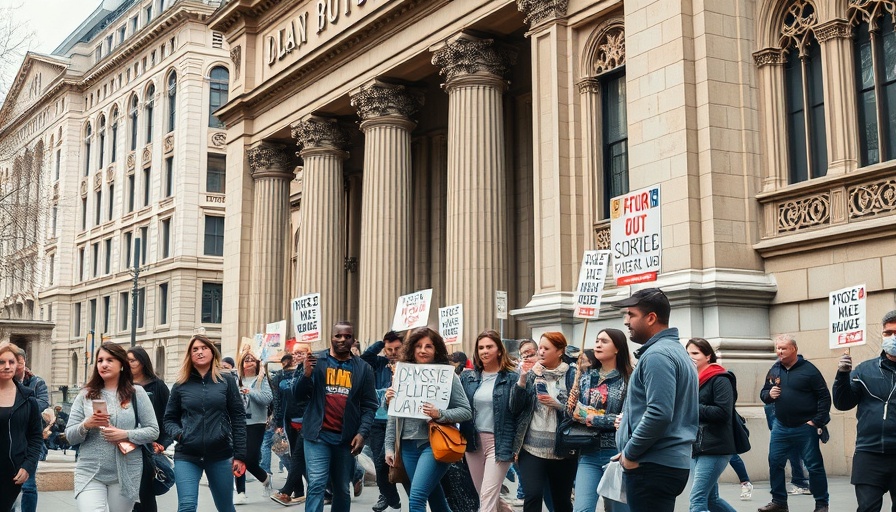
Asylum Seekers Arrested in San Francisco Court: A Harrowing Reality
On a recent Friday in San Francisco, a jarring reality unfolded within the court system, with four out of five asylum seekers apprehended shortly after their hearings. This alarming rate highlights the increasing tension surrounding immigration policies in the U.S., particularly in areas like San Francisco, known for its progressive stance on sanctuary and immigrant rights.
Only five of the fifteen scheduled individuals appeared for their routine court hearings. The presence—or lack thereof—of these individuals is indicative of a broader atmosphere of fear and uncertainty, a situation exacerbated by the stringent enforcement actions associated with the Department of Homeland Security.
The Courtroom Dynamics: Between Hope and Despair
The courtroom environment was charged with anxiety. Judge Joseph Park conducted proceedings remotely, a method that has become common since the pandemic. He was faced with critical decisions regarding the fate of these vulnerable individuals, one of whom was a young man, just twenty years old.
This young man, who had consulted with counsel prior to his hearing, made an emotional appeal to the judge, expressing his fear of returning to a hostile environment in his home country. His attorney reminded the court that only the judiciary has the authority to dismiss asylum cases, a point that resonated through the packed courtroom, despite the presence of ICE agents ready to detain individuals immediately after their hearings.
A Dangerous Precedent for Asylum Rights
The arrest of asylum seekers immediately following their court appearances raises critical questions about due process. Attorneys for the Department of Homeland Security frequently petition for the dismissal of cases, a tactic that some argue is a strategy designed to expedite deportations.
This alarming trend poses a direct threat not only to the individuals seeking refuge but also to the very foundations of the U.S. judicial system, which is intended to provide fair hearings.
Community Responses and Call to Action
As local organizations rally to support those affected, community members are increasingly aware of the challenges that asylum seekers face. Many residents, regardless of immigration status, are rising to the occasion to assist with resources and legal aid, emphasizing solidarity in the face of adversity.
Community support is paramount; it fosters a network of safety and mutual aid, crucial for those navigating a complex immigration system. Initiatives by local non-profits offer emotional and legal support, ensuring these individuals are not left to tread the uncertain waters alone.
What This Means for the Future: Policy Implications
The current landscape calls for a re-evaluation of immigration policies at all governmental levels. The implications of such arrests extend beyond the courtroom; they highlight a systemic issue that impacts entire families and communities.
Citizens are encouraged to advocate for reform by engaging in local politics—attending city council meetings, reaching out to representatives, and supporting organizations that fight for asylum rights. Policymakers must be reminded that their decisions can alter lives and communities.
Empathy in Action: Humanizing the Numbers
It's essential to remember that each statistic represents a human being with dreams and aspirations. The tenacity and hope shown by these asylum seekers deserve acknowledgment and support. As they navigate these turbulent waters, their stories should resonate within our collective conscience, reminding us of the need for compassion and understanding in a world fraught with division.
As we reflect on this critical situation, it's vital for the community to remain engaged and informed. Support local initiatives that aim to help asylum seekers, be it through donations or volunteering time and resources. Together, we can cultivate a society that prioritizes safety, justice, and humanity.
 Add Row
Add Row  Add
Add 




Write A Comment